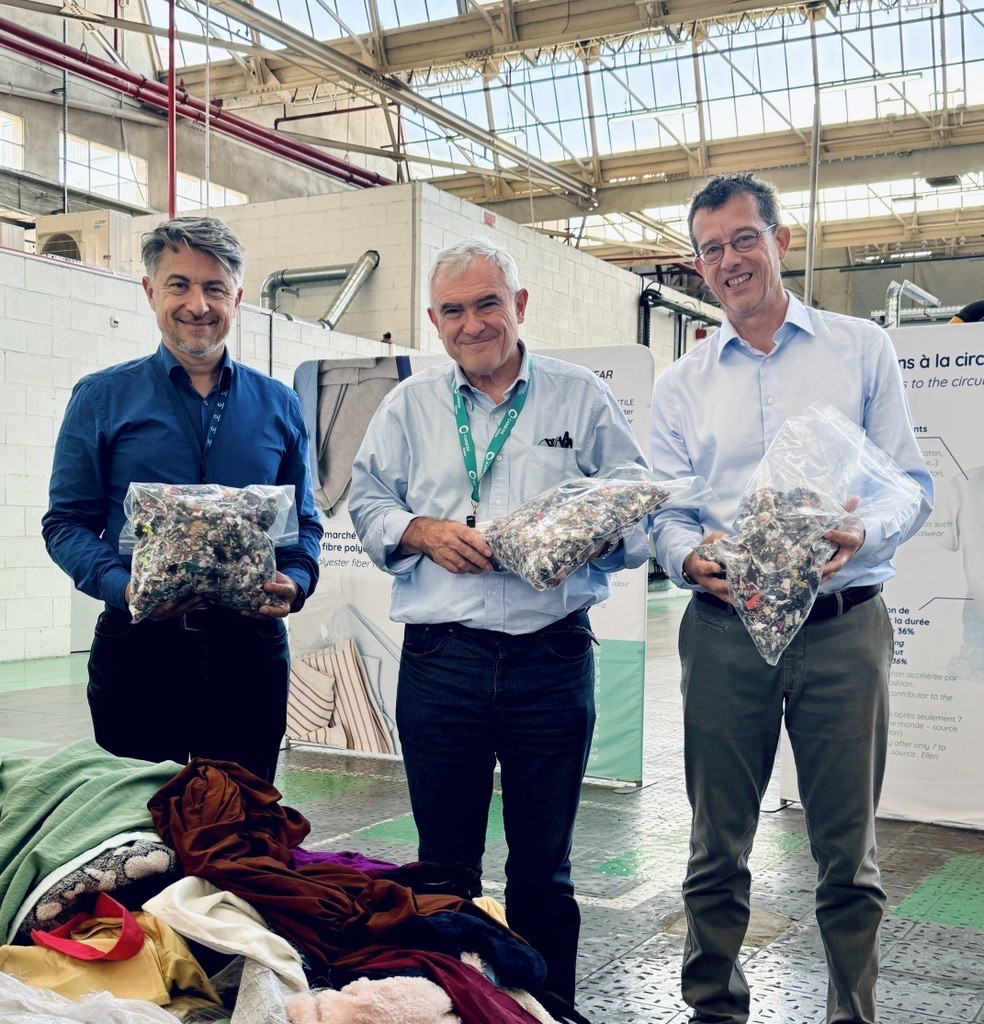The polyester textiles – used or end-of-life textiles prepared in France by Nouvelles Fibres Textiles – will be recycled at the plant using Carbios’ enzymatic depolymerisation technology. The contract provides for the annual supply of 5,000 tonnes from 2026 onwards, over an initial 5-year period. demonstrating the commitment Nouvelles Fibres Textiles and several partners, who contributed valuable expertise, opened a semi-industrial site with an annual capacity of 1,000 tonnes in November 2023.
These partners included Andritz Laroche, a world leader in textile recycling; Pellenc ST, a supplier of intelligent sorting solutions; Synergie TLC, active in the collection and first sorting for solidarity; and the Tissages de Charlieu group, a major French player in weaving, garment manufacturing and textile recycling. The unit functions as a research centre for textile recycling, and is used to convert textiles into high-quality raw materials that are in turn supplied to the various industries that use textile fibers, i.e.,non-wovens, insulation, plastic, textiles, etc.
At the research unit, the textiles are for the first time sorted automatically by composition, during which all hard items such as buttons, zips, patches, etc. are eliminated.
Carbios’ technology uses proprietary enzymes to break down polyester fibres into their basic components. These components are then used to produce high-quality recycled PET materials, such as fibres for the textile industry. This circular, ’fibre-to-fibre’ solution closes the loop for polyester fibres on a large scale.
Carbios is known as a biotech company, but we’re also a player in the textile industry and we actively collaborate with companies like Nouvelles Fibres Textiles to create a truly circular economy for textiles, said Emmanuel Ladent, CEO of Carbios.
The textile industry is emblematic of the over-consumption that characterises society today.
According to Eric Boël and Etienne Wiroth, co-directors of Nouvelles Fibres Textiles, one of the most ecologically, economically and socially effective responses is the circular economy, which preserves resources and boosts industrial sovereignty and local employment.
“But the extraordinary variety of textiles is holding back large-scale deployment,” they said. “New technologies, such as Carbios’ enzymatic depolymerisation and automated sorting by composition, are overcoming this obstacle. Above all, the links forged between the companies involved in this new circular value chain are helping to make this sector emblematic of an industry that does good for people and the planet, from producer to consumer.”
Source: sustainableplastics.com






